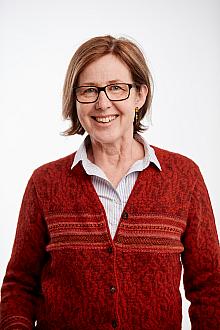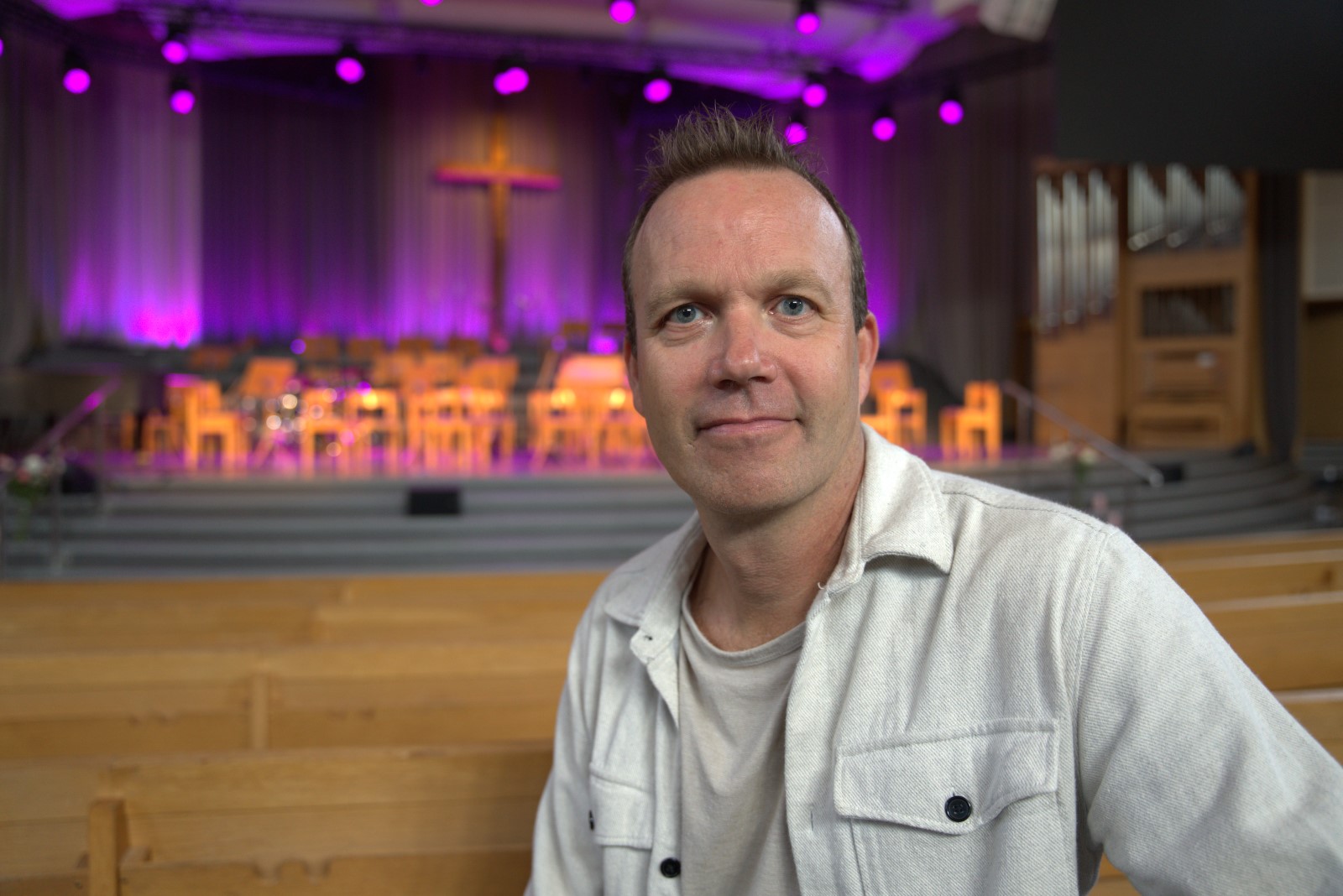
Marcus Ardenfors, pastor and director of Jönköping's Pentecostal congregation, thinks that the research project with the School of Engineering (JTH) at Jönköping University (JU) has given them tools for different path choices for their digital development.
New research on the church's digital development to solve societal challenges
When the basis for the churches' work, to meet physically in church services, disappeared during the Covid-19 pandemic, the congregations quickly switched to digital alternatives. New research from the School of Engineering (JTH) at Jönköping University (JU) depicts that journey within the Church of Pentecostal and ALT School of Theology and and what happened afterwards.
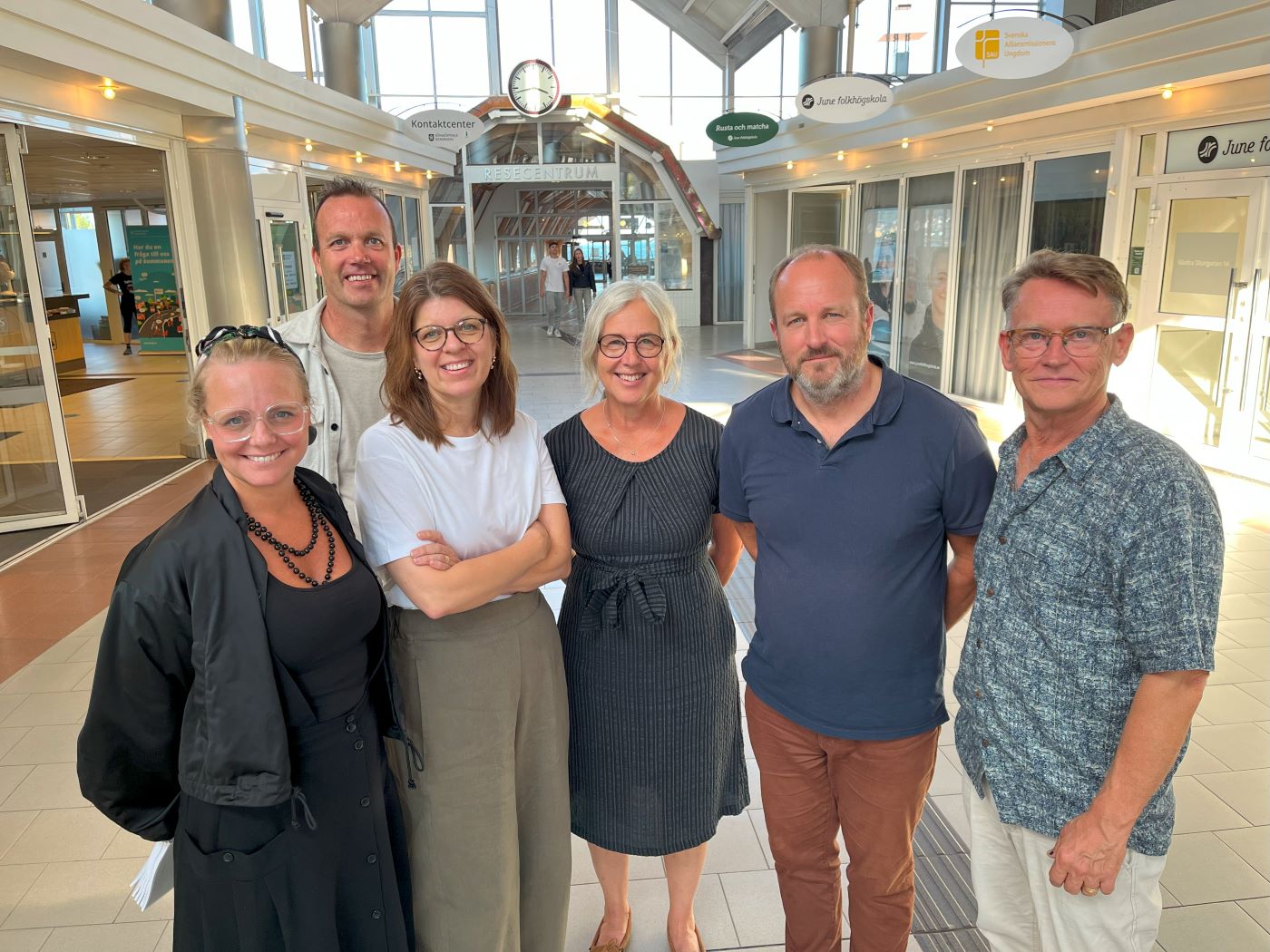
From the left: Anna-Kaisa Wahlin, pastor and creative director of Jönköping's Pentecostal congregation, Marcus Ardenfors, pastor and director of Jönköping's Pentecostal congregation, Anna-Carin Rabnor, head of unit for the Gothenburg diocese, Karin Havemose, Senior Lecturer Work Organisation at JTH, Joakim Netz, Assistant Professor Work Organisation JTH and Ulrik Josefsson, principal of the ALT School of Theology.
The research report on how churches meet societal challenges with digital innovation is written by Joakim Netz, Assistant Professor Work Organisation, and Karin Havemose, Senior Lecturer Work Organisation, and was presented on 6 September. Joakim and Karin followed seven congregations within the Pentecostal Church and the ALT School of Theology within the Swedish Free Church during the pandemic years 2020-2023. They saw how the congregations quickly switched to broadcasting different church services online. It made things easier, not least for most older parishioners who had difficulty getting to church. There were also protests from them when the congregations suggested a return to more traditional church activities.
The older parishioners pushed the digital transition
One thing that surprised Joakim and Karin was that it was often the older parishioners who were pushing the digital transition in the congregations during the corona pandemic, while the young people were tired of being in front of the screen.
“Among other things, we followed a lady of about 90 years who was active in the implementation of the digital transformation in the parish and who was driving the issue of continuing the digital parish work,” says Joakim Netz.
Digital transformation is mainly described as something positive. However, the project shows shortcomings with the new technology. For example, a child attended an online meeting with his congregation from a restaurant because the child's family could not afford broadband and this was noticed during the meeting.
Contradictions between developing and decommissioning
Joakim and Karin's observations of the digital transformation before, during and after the Covid -19 pandemic show how the development of new digital offerings both changed and stabilized within the seven Pentecostal congregations. Some things were made permanent in regular operations, while others were phased out when the pandemic subsided, even though they had contributed to dealing with societal challenges. The research report shows the contradiction between developing and discontinuing digitized offers also within ALT School of Theology. They have organized their management and core operations through digital platforms, but few of the digital offerings were integrated into local congregations. This made teachers and the operational management at ALT hesitant to invest in training in digital pastoral leadership.
Take care of young and vulnerable people
Joakim and Karin hope to continue their work around civil society's strategy work for digital transformation in other crises.
“When gang crime escalates, idea-driven movements such as the Pentecostal Church have a significant role in how society can take care of young and vulnerable people with the help of digital solutions before it's too late,” says Joakim Netz.
Marcus Ardenfors, pastor and director of Jönköping's Pentecostal congregation, says that during the pandemic it became obvious to them that they needed to adapt to the digital reality in order to maintain good contact and create participation within the congregation.
“This has been a valuable investment in the competence development of our staff, which has given us questions and analyses that we ourselves did not have the conditions to work on,” says Marcus Ardenfors.
Here you can read the research report Pdf, 2.4 MB, opens in new window."Kyrkans digitala transformation och gränsöverskridande strategiarbete vid samällsutmaningar" (in Swedish only)
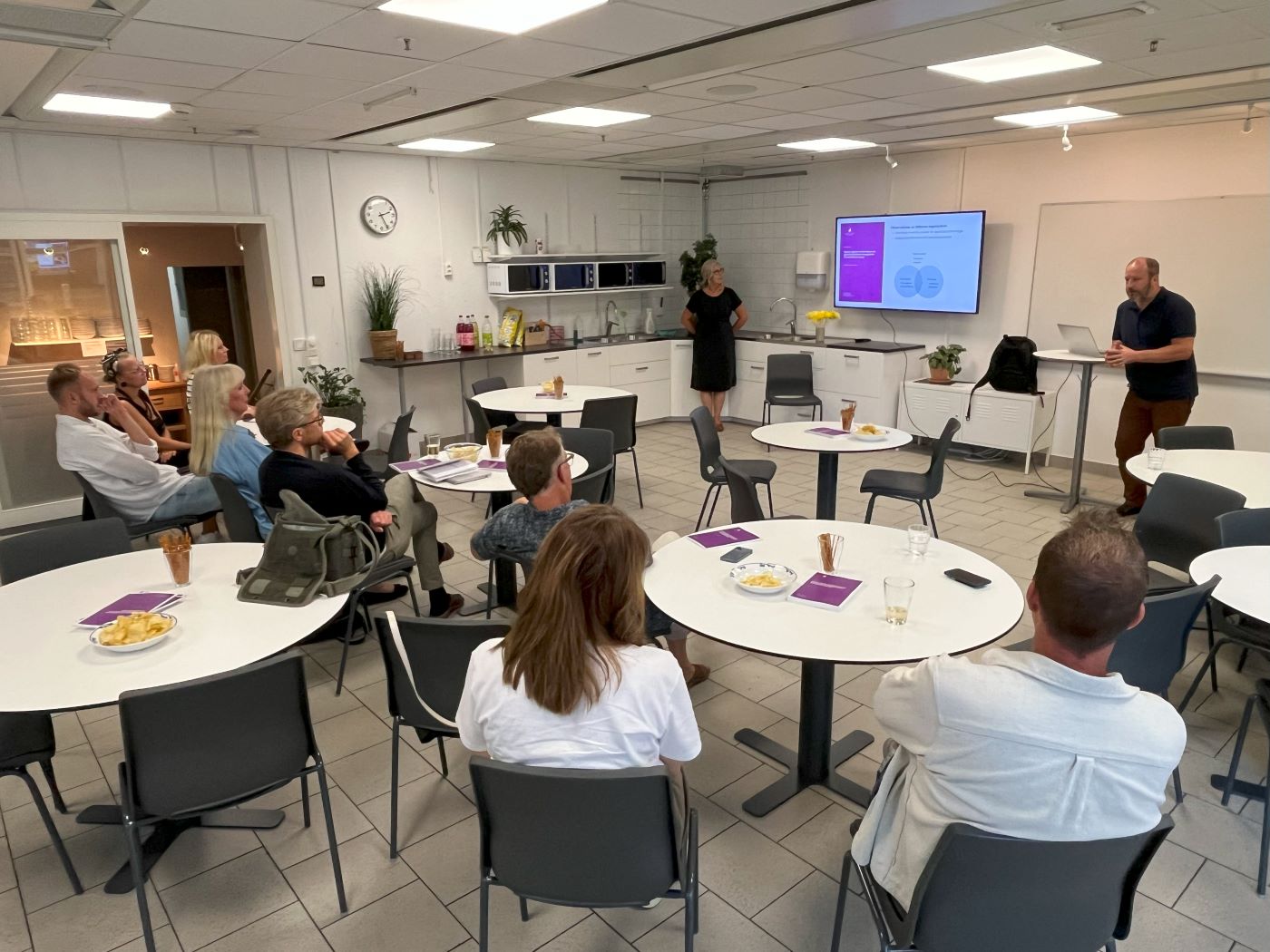
The research report on how churches meet societal challenges with digital innovation was presented on 6 September at June residential college for adult education in Jönköping.
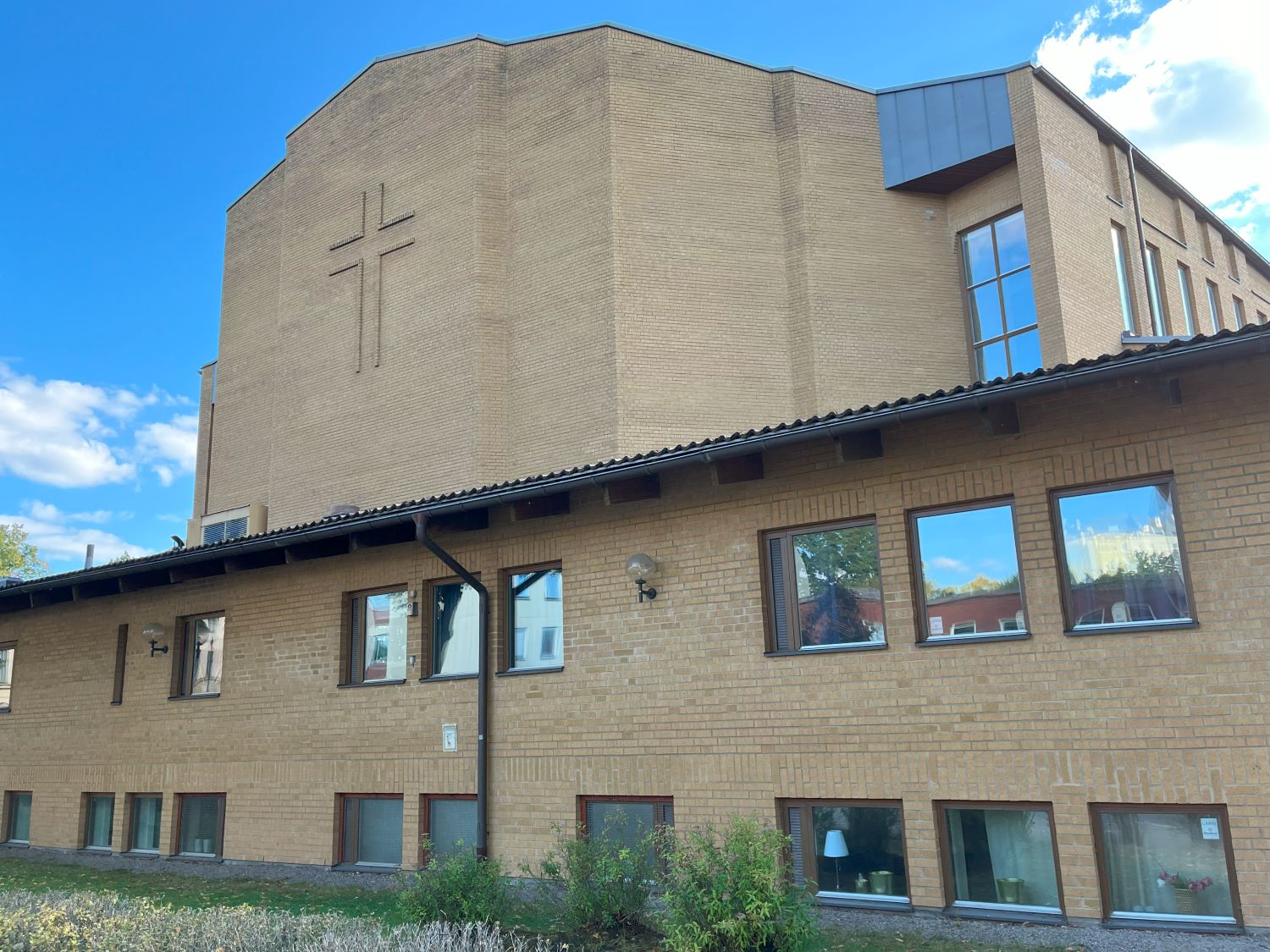
The Pentecostal church in Jönköping.
Facts
ALT School of Theology is a non-profit association whose core activity consists in conducting theological leadership training at seven residential colleges for adult education in Sweden, of which June residential college for adult education in Jönköping is one of them. Member organizations in ALT School of Theology are the Evangelical Free Church, Pentecost - free congregations in collaboration and the Swedish Alliance Mission.
- Assistant Professor Work Organisation
- School of Engineering
- joakim.netz@ju.se
- +46 36-10 1601
- Senior Lecturer Work Organisation
- School of Engineering
- karin.havemose@ju.se
- +46 36-10 1926




